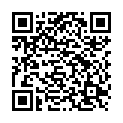|
|
|
| Module code: BBWL-2020-150 |
|
|
4V (4 hours per week) |
|
5 |
| Semester: 1 |
| Mandatory course: yes |
Language of instruction:
German |
Assessment:
Written exam (90 min. / can be repeated semesterly)
[updated 02.01.2019]
|
BBWL-150 (P420-0102) Business Administration, Bachelor, ASPO 01.10.2012
, semester 1, mandatory course
BBWL-150 (P420-0102) Business Administration, Bachelor, ASPO 01.10.2016
, semester 1, mandatory course
BBWL-2020-150 (P420-0102) Business Administration, Bachelor, ASPO 01.10.2020
, semester 1, mandatory course
|
60 class hours (= 45 clock hours) over a 15-week period.
The total student study time is 150 hours (equivalent to 5 ECTS credits).
There are therefore 105 hours available for class preparation and follow-up work and exam preparation.
|
Recommended prerequisites (modules):
None.
|
Recommended as prerequisite for:
BBWL-2020-541
BBWL-2020-542 Specialization (SP) Module 2: Marketing Tools
BBWL-2020-643
BBWL-2020-645
[updated 22.02.2020]
|
Module coordinator:
Prof. Dr. Nicole Schwarz |
Lecturer: Prof. Dr. Nicole Schwarz
[updated 01.10.2016]
|
Learning outcomes:
After successfully completing this module, students will be able to:
- list, describe and put basic marketing terms and content
into context
- describe and explain different areas of marketing
- apply the steps for developing a marketing strategy
- describe the most important areas and methods of marketing information
- explain the importance of consumer behavior research for the field of marketing
- reflect basic knowledge about the marketing tools and
demonstrate the relationship between them
- independently develop the content of the lecture on the basis of self-chosen/pre-selected
literature
- work independently on smaller marketing issues in the form of case studies from practical experience using the theoretical knowledge acquired in the module
- Marketing development stages
[updated 02.01.2019]
|
Module content:
- Concept of market-oriented corporate management and the marketing management
process
- Principles of consumer behavior and market research
- Market segmentation methods
- Approaches to strategic marketing (KKV, SWOT, Product Market Matrix)
- Basic principles of product policy, pricing policy, communication and
distribution policy
[updated 02.01.2019]
|
Teaching methods/Media:
Lecture with group work and case studies
[updated 02.01.2019]
|
Recommended or required reading:
- Homburg, C., Krohmer, H. (2009), Marketingmanagement, 3. Auflage. Wiesbaden:
Gabler.
- Kotler, P. et al (2010): Grundlagen des Marketing, 5. Auflage. München:
Pearson Studium
- Kroeber-Riel, W., Weinberg, P., Gröppel-Klein, A. (2008):
Konsumentenverhalten, 9. Aufl., München: Vahlen
- Meffert, H. et al. (2008): Marketing. Grundlagen marktorientierter
Unternehmensführung. 10., vollst. überarb. u. erw. Auflage. Wiesbaden: Gabler.
- Nieschlag, R., Dichtl, E., Hörschgen, H. (2002), Marketing, 19. Auflage.
Berlin: Duncker & Humblot
- Weis, H.-C. (2009), Marketing, 15. Auflage. Ludwigshafen: Kiehl
[updated 02.01.2019]
|

